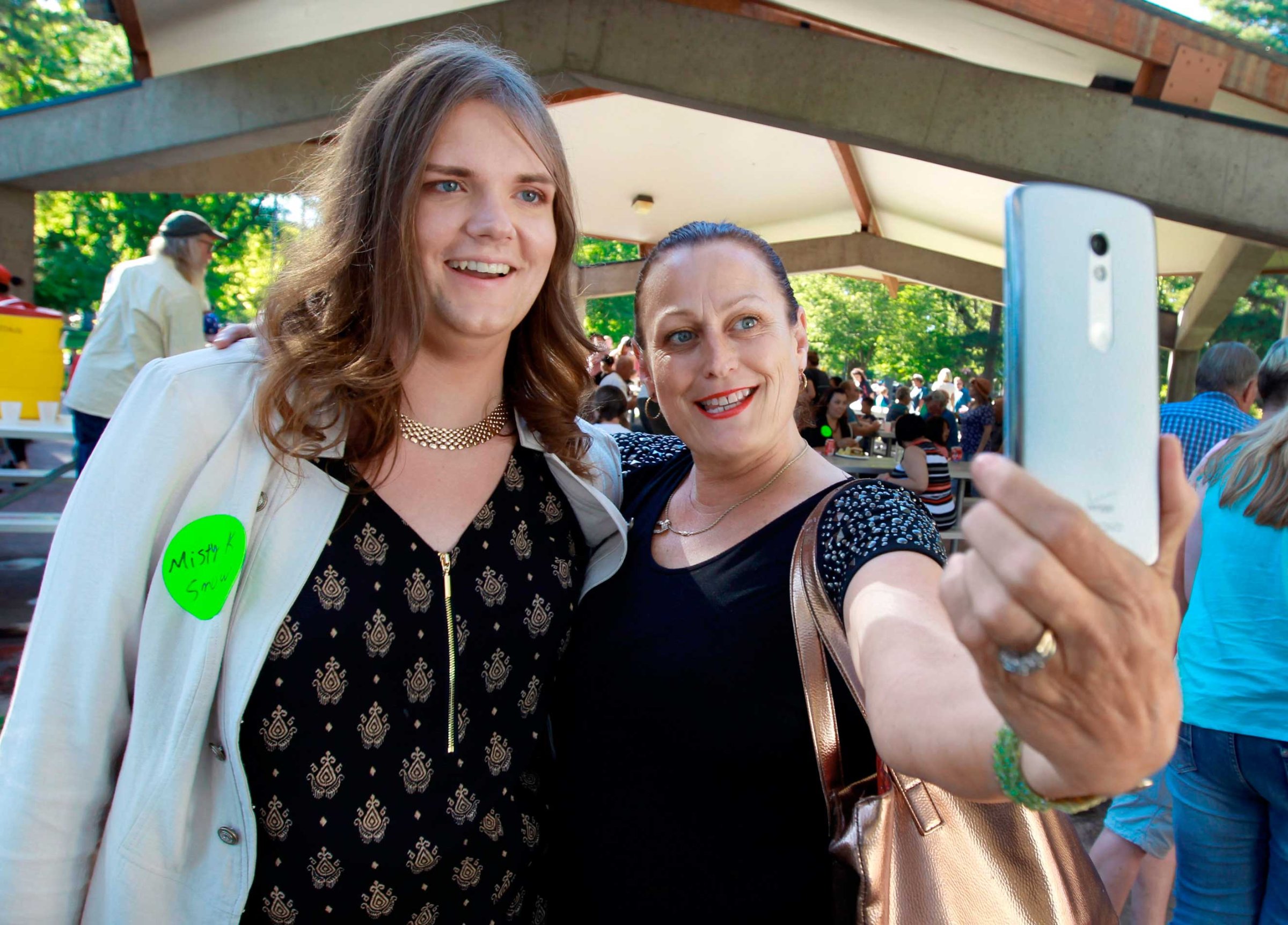
Democratic Senate candidate Misty Snow had just finished a television interview in Salt Lake City when the reporter holding the microphone bade her farewell. “Thank you, sir,” he said on Aug. 23, before correcting himself with a nervous laugh: “Ma’am.” Snow, the first openly transgender candidate running as a major party’s nominee for the U.S. Senate, didn’t let the slipup faze her. It happens from time to time, an accident rather than an aggressive act in one of the most socially conservative states.
At a time when debates over transgender bathroom access have roiled schools and statehouses, Snow is experiencing something else entirely. The Mormon-owned Deseret News, like every major news outlet, affirms her as “she” without qualification. Snow’s website biography makes no mention of the barrier she has broken, instead describing her as a millennial and a progressive, working-class activist. Even her opponent, Republican Senator Mike Lee, has said little except to congratulate her on a “historic achievement.” As Snow says, “Utahans are nice.”
There is a joke that has been circulating on Facebook to underscore the point. The punch line is that the real story about Snow’s candidacy is her bravery in running as an “openly Democratic candidate” in Utah. On the day TIME spent with her recently, the only time she heartily laughed was when she recalled the gag. “I never ran because I was trans,” she says. During several conversations with voters and staff at campaign events, that D was much more the focus than T, as people queried her about health care costs and how to reach young voters in a year when doubts about Donald Trump have made Utah liberals more hopeful than usual. To win the nomination, Snow beat a more conservative Democrat in the primary–an antiabortion candidate who promised to push for a “full investigation” of Planned Parenthood. She ran as a woman who supports women’s issues. “Why can’t we guarantee our mothers paid maternity leave like nearly every other country in the world?” Snow implored the crowd at the state convention.
Still, the simple fact of Snow’s running as an openly transgender candidate is a radical act. In October, she will debate Lee at Brigham Young University, where the honor code forbids same-sex behavior and carries a strict gender-specific dress code. Transgender students are handled “on a case-by-case basis,” a university spokesperson says. Earlier this year BYU’s Idaho campus sought (and received) a religious exemption from the federal government when a transgender student complained of discrimination. The appeal suggested that Latter-day Saints teachings discourage gender transitioning, and the church has said those who seek surgery risk their membership. “I couldn’t have picked a better venue,” Snow says of debating at BYU. Her slogan, after all, is “Fight the status quo. Vote for Misty K. Snow.”
The 31-year-old is an unlikely candidate in other ways too. She is a grocery-store clerk who lives with her mother and did not go to college; she says depression related to her gender identity stifled her ambition through most of her 20s. (Of coming out a few years ago, she says, “It finally got to a point where I couldn’t not do it anymore.”) Like 60% of Utahans, Snow grew up Mormon, but she “fell away” as a teen when she realized she, or someone like her, might not be welcome at the temple. Though she’s never run for office before, Snow has well-honed talking points ($15 minimum wage, Medicaid expansion, reproductive rights) and a keen sense of detail. She can casually reel off statistics like the number of uninsured children in the state.
With a few thousand dollars in the bank and little national party support, few expect her to topple Lee in the heavily Republican state. But larger issues may be at stake: local supporters like Sheila Raboy, who ran the LGBT center in Salt Lake City for a time, note that suicide is now the leading cause of death among Utah teenagers, and many have drawn the connection to the rejection of LGBT youth by conservative families. “You have a transgender kid in a rural area of Utah, and they’re going, ‘Wow,'” says Raboy. “It says to them there’s hope.”
More Must-Reads from TIME
- Donald Trump Is TIME's 2024 Person of the Year
- Why We Chose Trump as Person of the Year
- Is Intermittent Fasting Good or Bad for You?
- The 100 Must-Read Books of 2024
- The 20 Best Christmas TV Episodes
- Column: If Optimism Feels Ridiculous Now, Try Hope
- The Future of Climate Action Is Trade Policy
- Merle Bombardieri Is Helping People Make the Baby Decision
Contact us at letters@time.com